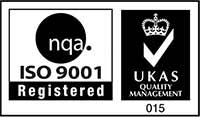It has been recently revealed that councils across England and Wales are turning off CCTV cameras in order to lower their operating costs, a surveillance watchdog has reported. As underlined by Tony Porter, the surveillance camera commissioner, the switching off of cameras will doubtlessly make it harder for crime to be detected and for criminals to be apprehended.
Mr Porter levelled blame at the recent austerity cuts, noting the slashed budgets had led councils to move money away from CCTV equipment in public space. This didn’t just effect the equipment itself, but meant that less money was available for staff training.
Mr Porter stated that: “There are an increasing number of examples where councils and employees are citing a lack of money as being the rationale to reduce the service or completely change its composition – and that does concern me. Most people recognise the utility of CCTV for supporting law enforcement. To degrade the capacity may have an impact on police. It may well be that they will find it increasingly difficult to acquire the images that will help them investigate crimes.”
The UK is recognised across the globe for its vast network of CCTV cameras; the country currently employs the largest number in the word. The British Security Industry Association (BSIA) estimates that, of the 4-5.9 million cameras in the country, around one in seventy are publicly owned.
Mr Porter drew attention to the need for councils to sake greater accountability for their use of the technology, warning of the potential misuses of cameras. Complaining that councils in many large towns have stopped monitoring their systems on a 24-7 basis – in order to save money rather than due to a review or public consultation – he predicted that the lessening of public space CCTV would lead to a deterioration of standards.
Crime figures have been falling in England and Wales, with communities generally being the safest they have been since the independent Crime Survey for England and Wales began in 1981, but this progress could be retarded by a decreased use of CCTV technology. Mr Porter ultimately argued that usage should be decided by elected local councillors to reflect local circumstances and the wishes of the community in general.
Of course, these revelations also underline the need for business premises to be fitted with their own independent CCTV systems, ensuring that they remain protected in the event of council owned cameras being either inactive or unmonitored.






